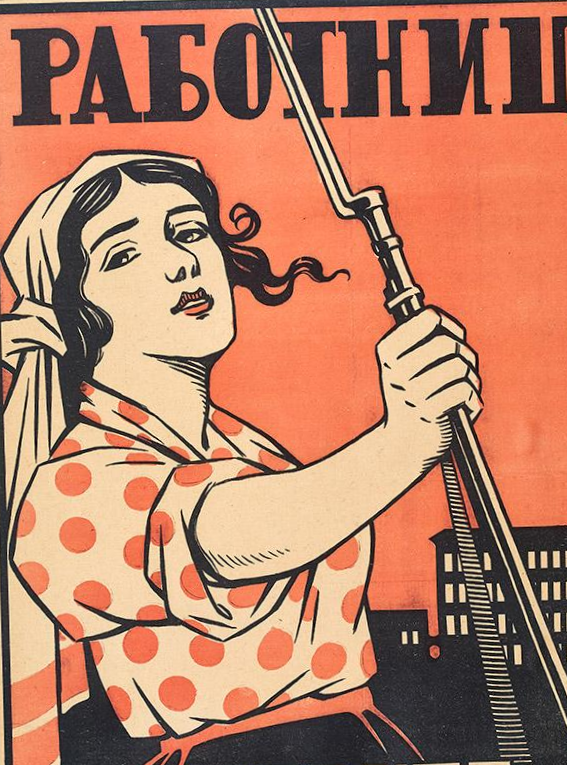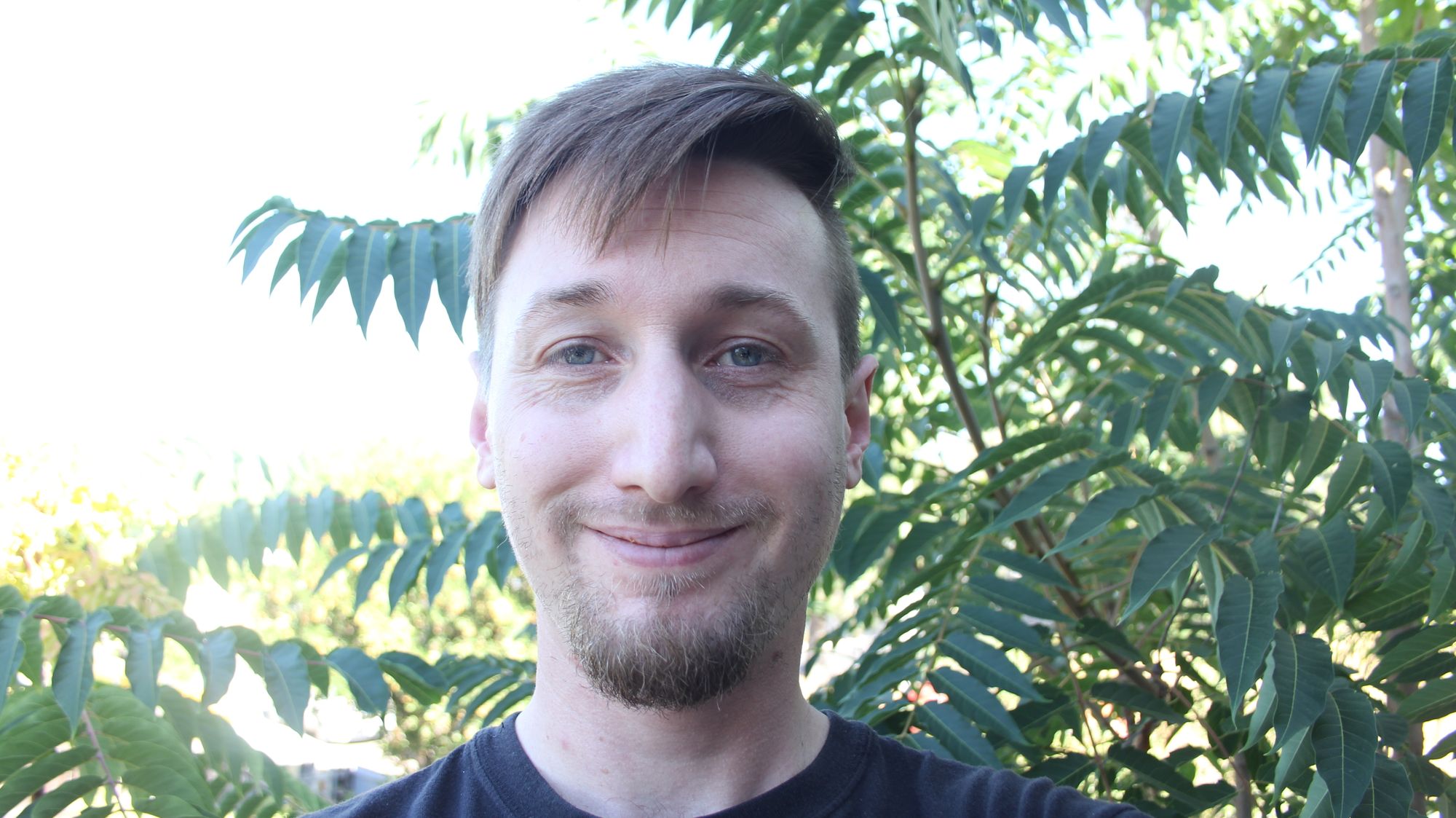The Etniko Bandido workshop is a community centre and anarchist space in Pasig, the Philippines, and whose volunteers are dedicated to the spreading of anarchist ideals and practises. Aside from publishing their own printed materials, and hosting a blog and news site online, the infoshop provides a space free for anyone in the local community to use for workshops, film screenings, study circles, or whatever else takes their fancy. In this interview we had the pleasure of speaking to Cris, who enlightens us as to their recent activities, how the infoshop is run, and how they adapt anarchism's western roots for a Filipino audience.
If you want to see everything the infoshop has been up to and find where you may support them, do check out their blog.
How did the Etniko Bandido Infoshop come to be?
Hello, there Samuel,
I firstly heard this infoshop through Manila Infoshop in 2004, it is a mobile infoshop without physical space. They are one of the collective who share stuffs, mostly zines, pamphlet, poster and stickers. Because of this, I questioned why we do not have our own physical space in which we can organize and share our political belief to the public. If we have a gathering, meetings or any activity we are just using public spaces like park, malls, parking lot, streets and university campuses. I feel that, having spaces that you don’t personally-run are limiting the attempt for liberational imagination and self-determination. This is the time I put my passion, energy and personal resources to create and imagined to have an infoshop or our autonomous space. Take the responsibility in running a space and practice and discuss anarchist values and so on. My idea is to create an alternative space for myself and for the people; an alternative space that question mainstream society and at the same time offering other thoughts and different reality within the community. I wanted to share myself to the public, my ideas, and my friends, the things that I do and constantly exposed it so it will became a norm. I believed that anarchism has an inherit better values in which even ordinary or common people already doing it but they are not aware because the mainstream information already disrupt it, so my life-plan is to take it back, re-unlearn, decolonize and exposed people on a lifeways that I think will give them a new paradigm. The infoshop were not made to recruit or convert people but rather a place for self-realization and taking back your autonomy as an individual.
Etniko Bandido Infoshop is not the first infoshop project that I’ve been involved. I am also part of the infoshop in Bulacan provinces initiated by seven people who are part of Pinagkaisahan Kolektiba dated in 2006. This infoshop only lasted for three months and because of other priorities, we decided to split and I managed to save all the materials like books, zine and journals and move it in my friend’s house for a while. Because I am still living with my sister, I cannot pursue back my life-long project. Even though, I do not have an infoshop, I am still actively participating in any socio-political and ecological related activities. And, then, when I got a chance, I finally rented a 20 sq. Meter place in Pasig City and in September 2010 the Etniko Bandido Infoshop was born and still running until the present day. This is my individual initiative at first, with the help of friends local and abroad then my partner join me and lived with me and now only two people running this space for almost 10 years compare to my collective before. Etniko Bandido Infoshop is our home at the same, a socio-political space that cater and host community-oriented event.
What part do you hope to play in the anarchist movement?
In my 18 years in the movement. I am aware of the development of the anarchist movement here in the archipelago. I am more comfortable on continuing the effort on providing information and the culture of skill-sharing, an information that can be shown in different way like through music, art work, written documents or film and combined it with mutual-aid initiatives and solidarity effort. Normalize it so people will have a reference. But I am not doing this to liberate the people, liberation is in their own hands. I am just doing my thing; it depends on them if they will agree, inspired, question or criticize my action.
How are you organised as a group? Do you have a horizontal structure?
Definitely, every organizing here practice horizontalism. Every decision made through consensus. If there is a big organizing that will be composed of Local Autonomous Network (LAN), my work there is a coordinator, trying to pass and gather information, remind the network but still the decision need to respect the participants opinion and suggestion at all cost no matter how long we will it take to discuss it. In our space is much easy because we are just only two people who will decide for any activity, if we want to collaborate with other individuals and groups, it is the same process, we need to discuss every plan thoroughly and come up with a consensus. Horizontalism is a basic values we promoted here and we wanted that every people that we meet or collaborate with us will experience this approach in organizing.
What specific challenges do you face in the Philippines, and how do you tackle them?
Mainly the main challenges that we face is lack of resources on financing projects that’s why we manage to limit ourselves in projects, campaigns or activity that is more practical, manageable and comfortable for us. Things that can be done base on our own capacity, time, effort and resources. Poverty, human rights issue and massive ecological exploitation are the frontline issue here but we cannot be a saviour for all this madness. We resist and exist base on immediate challenges and problem that we faced in our everyday lives.
Politically, it would be more challenging now as fascist regime at the moment are making threats to dissident and activist. If you will know, so-called Philippines are one of the most dangerous country in the world for activist, environmentalist etc. Duterte administration is a war-mongering gangster, he is well-known for his violent policy and State-sanction killing. The “war on drugs” that he launched in 2016 already killed an estimated 30,000 people. A genocidal act against the poor communities. Recently, they just passed a law sign by this president “the Anti-Terrorism Act of 2020”, a law in which suspected terrorist can be arrested without warrant and be imprisoned for 24 days and up without trial or whatsoever. On this law, anyone can be branded as terrorist because the law has a lot of loopholes and very vague provisions. Even you are just helping a community through legal efforts, soup-kitchen activity or solidarity work for any marginalized, you can be subject for arrest if your group or initiative were not listed or registered as legitimate foundation or charitable groups like Red Cross etc.
How do you interact with your community/ies?
Particularly, here in our community in Pasig. We just act as a normal citizen like them. We try not to alienate them and creating a vibe that is more inclusive. It is a challenge to be in a working-class and middle class community at the same time. Communities are not perfect; there still a lot of people here who are intimidated and curious on what we are doing and on how we lived. But this is a normal thing to see because for a long time they are not familiar with a kind of people like us but gently and in the process some of them managed to understand who we are not because we are anarchist but rather because they see that our effort is essential and beneficial. So, in this way, this will be our chance to create more connection and meaningful conversation. You need to show to the community that you’re doing something innovational, health conscious and practically beneficial. And what is that, we had solar power set-up here in our infoshop in 2013 and made a public workshop, we do urban gardening and composting workshop, info-drive about genetically food (GMO), Really Really Free Market and so on.
We are just doing our thing that we think is important to us and it depends on the people in the community if they will be interested or not. Even though most of them don’t want to engaged with us, we know that we touch their lives and make an impact to themselves. What we are doing is just a tactical approach to present anarchism in different way, in this way people will realize something, question will bubble in their head and their imagination became active again. The general public here is passive and obedient, so for them to be able to approached us and question what we do even if its for the sake of learning process or a negative attribution on our work, we are happy and satisfied. We are just instilling a seeds but at the same doing what we want to achieve in the present days.
What have your interactions been like with the government?
In our locality, we have no problem. Most of them are confused of who we are, especially the government, they are having difficulties on identifying us. But in my experience, I do not have any partnership with the government. We organized autonomously and find ways how local government unit will not have a chance to intervene. We collaborate with neighborhood and common people in the community. I am also more open to collaborate with dedicated NGO’s.
As an info shop, how do you approach spreading the word of anarchism?
As I have said earlier, in our context the word anarchism is alienable because it came from the west. The term anarchism had a horrific inclination and negative attributes. Therefore, I decided to take the values presented by anarchism and locally contextualized it and translate its language so the people here can understand. Each word need to present into public not only by words and theoretical explanation but first and foremost through practical application. Example, Mutual aid I translate it into “Kapwa-Tulungan” then organized an event practicing “Kapwa-Tulungan” from here you can give out flyers to the public explaining the reason behind your activity. I believed that the people here need to see if they will gain something or it will be beneficial for them to participate or even listen to what you are presenting. Most of the people here, accustomed with how the politician, church, NGO’s and other institution approached the public, they always give something on this people. They all put “false hopes” and yet the people are always dependent on them. What we do is the same approached, sharing something but at the same explaining and disrupting their “false hopes”. Showing them that every one of us can do something great and changes will came from each of us and not with this politician, party, churches and institution. Drastic changes will be determined by the community itself and not by the system that they dependent on. Promoting the mutual-aid values that are inherited to us a human being, I think that if we just need to focus on this approached for the people to realized self-determination and then from that we can build a better world from it.
We also do organizing different event here in our infoshop, from gig/musical performances, art exhibition, workshops, coffee and discussion, podcast, gathering, zine and pamphlet publication, etc.
If you were to recommend a good introduction to anarchism, what would you choose?
One that influence me the most is the book made by Alexander Berkman “What is Anarchist-Communism” and of course the writings made by my local comrade Bas Umali entitled “ Pangayaw and Decolonizing Resistance: Anarchism in the Philippines”
What advice would you give to those looking to create an organisation like your own?
Honestly, I am not a fan of organizational structure base on how I understand organization itself. I am more into relational than organizational. I rather build a good and inclusive relational approaches then we see if we can do something collectively. Etniko Bandido Infoshop are more on organizing event and activities than creating an organization. I believed each individuals has their own desire, I do not want that desire to be limited by organizational structure. Let the people choose their own path of struggle or interest and we are just here if the people want to collaborate. People will find you if they are interested, just do your thing and don’t wait for someone to be involve, they will come as long as you welcome them to your life project. Doing things for radical change will start on you and on your own will. You can be part of any organization but still the question if you personally like it or not.
Is there anything else you would like to add that we have not covered?
I just want to say thank you for this interview. Anarchist in South-East Asian context are not really popular or known by international community. So, I am glad that you initiate this interview and hoping people from UK will read this and they will be interested on anti-authoritarian and decolonize activism that we have here.
Just want to promote some of our project and local initiatives here:
- We are looking for people who might be interested to re-publish a book that me and my friends made, entitled “Anarcha-Feminism in the Philippines” the first book publish here in relation to Anarchism in local context.
- Please support us on sharing and buying this Solidarity shirt made by a German friend. This is a propaganda against police institution here. In retaliation with a police state mentality of the government in handling Covid 19 health crisis. This is part of our campaign to promote the idea of abolishing police institution and create a community-centered welfare program.
- Condemned San Miguel Corporation in pursuing Bulacan Aerotropolis project, an airport project that will destroy thousands of marine species, will evict around 700 families and destroy their livelihood.
Thanks to Samuel Clarke for editing and providing the introduction to this interview.
Special thanks to our patrons, John Walker, BoringAsian, Mr Jake P Walker, Joseph Sharples, Josh Stead, Dave, Bliss, Hol, Aryeh Calvin, Rylee Lawson, Meghan Morales
If you want to help us maintain and develop our publication please consider becoming a patron:





